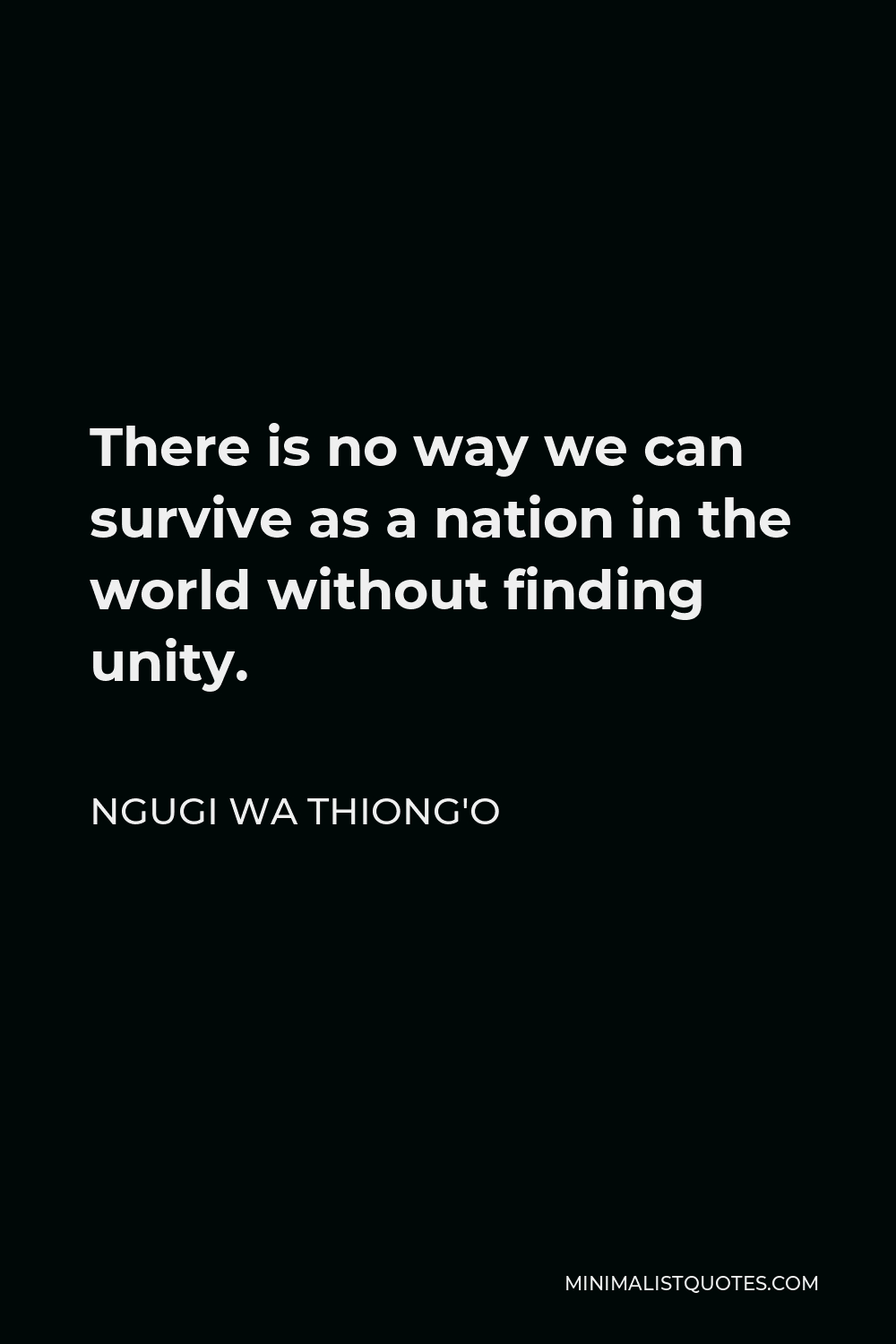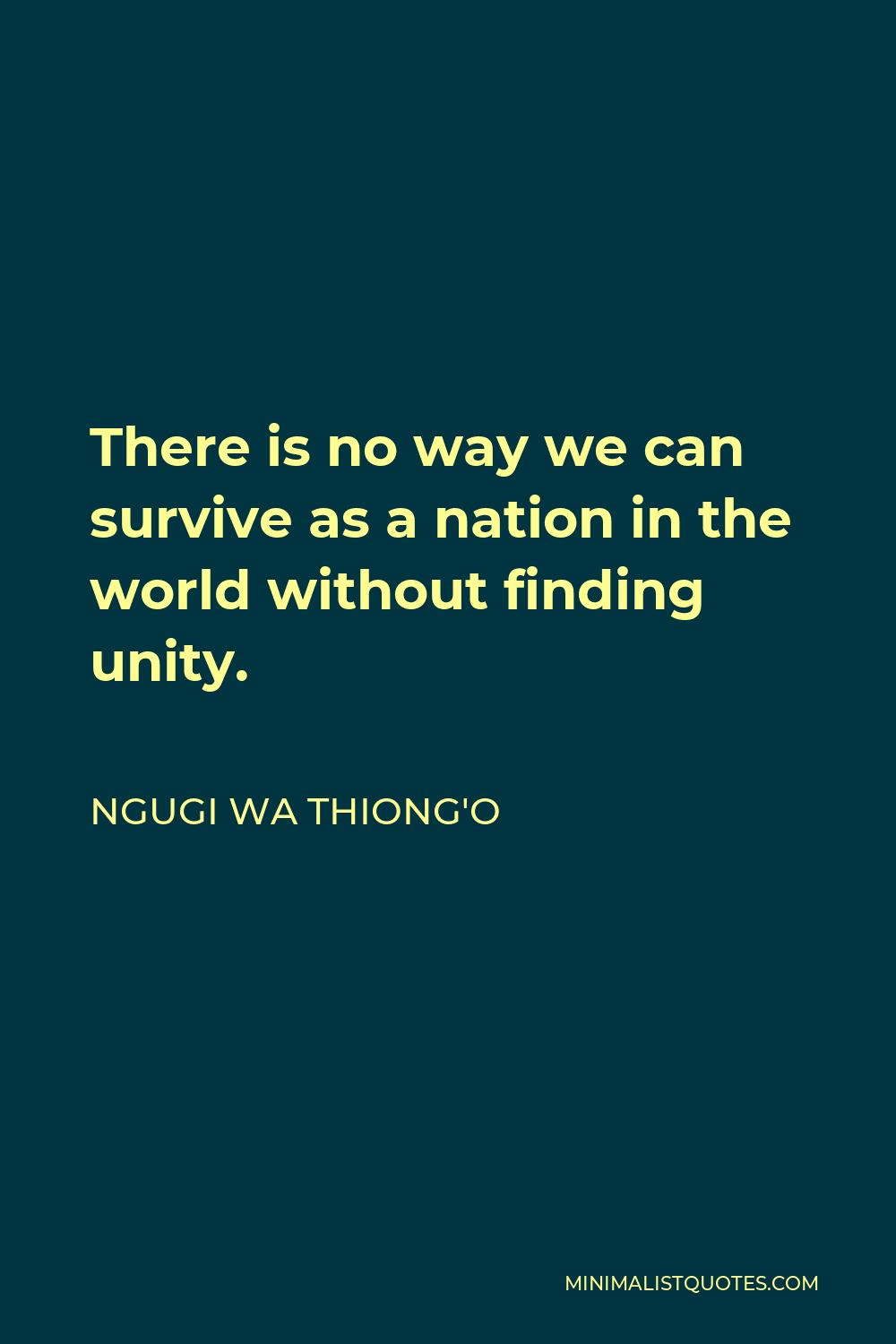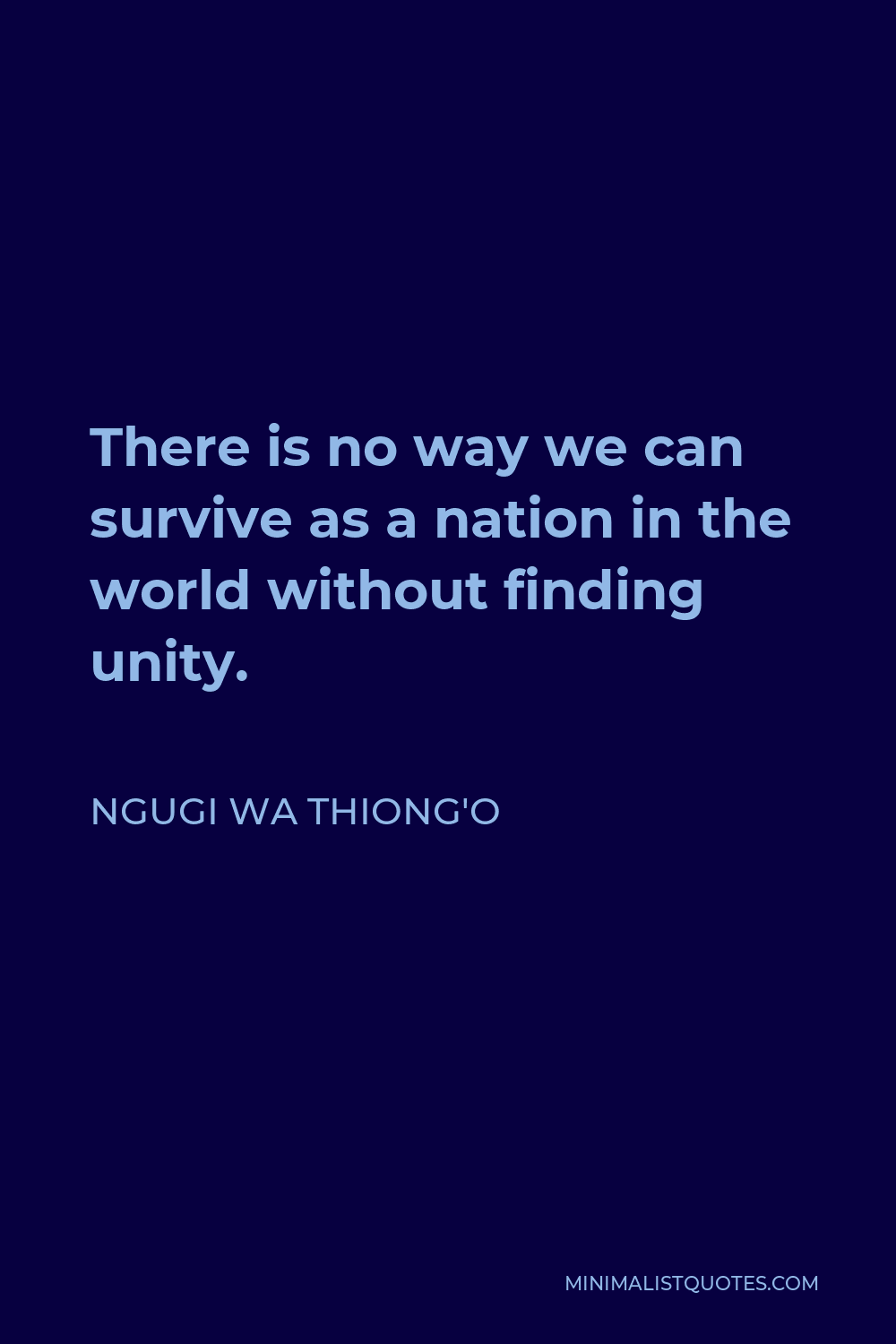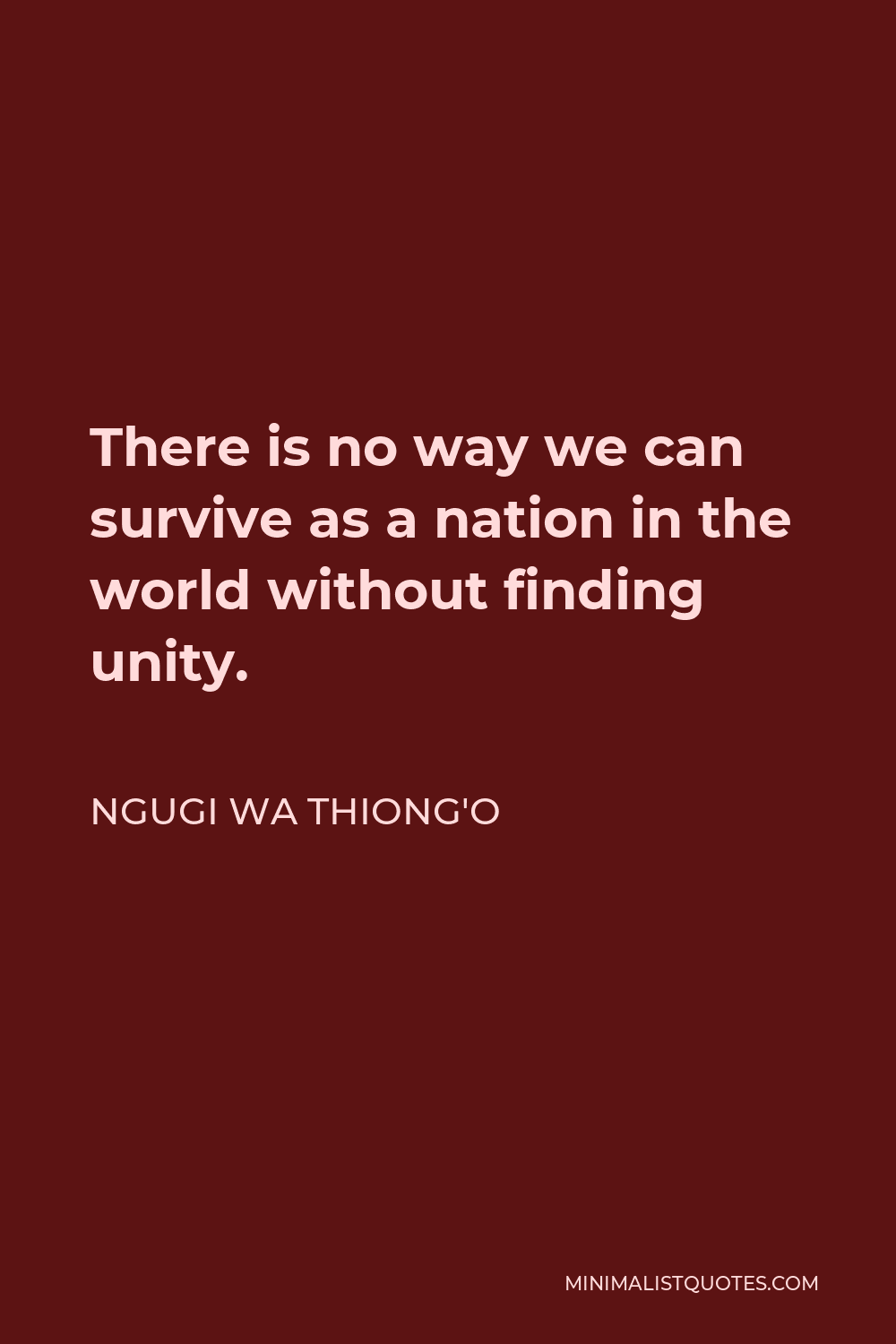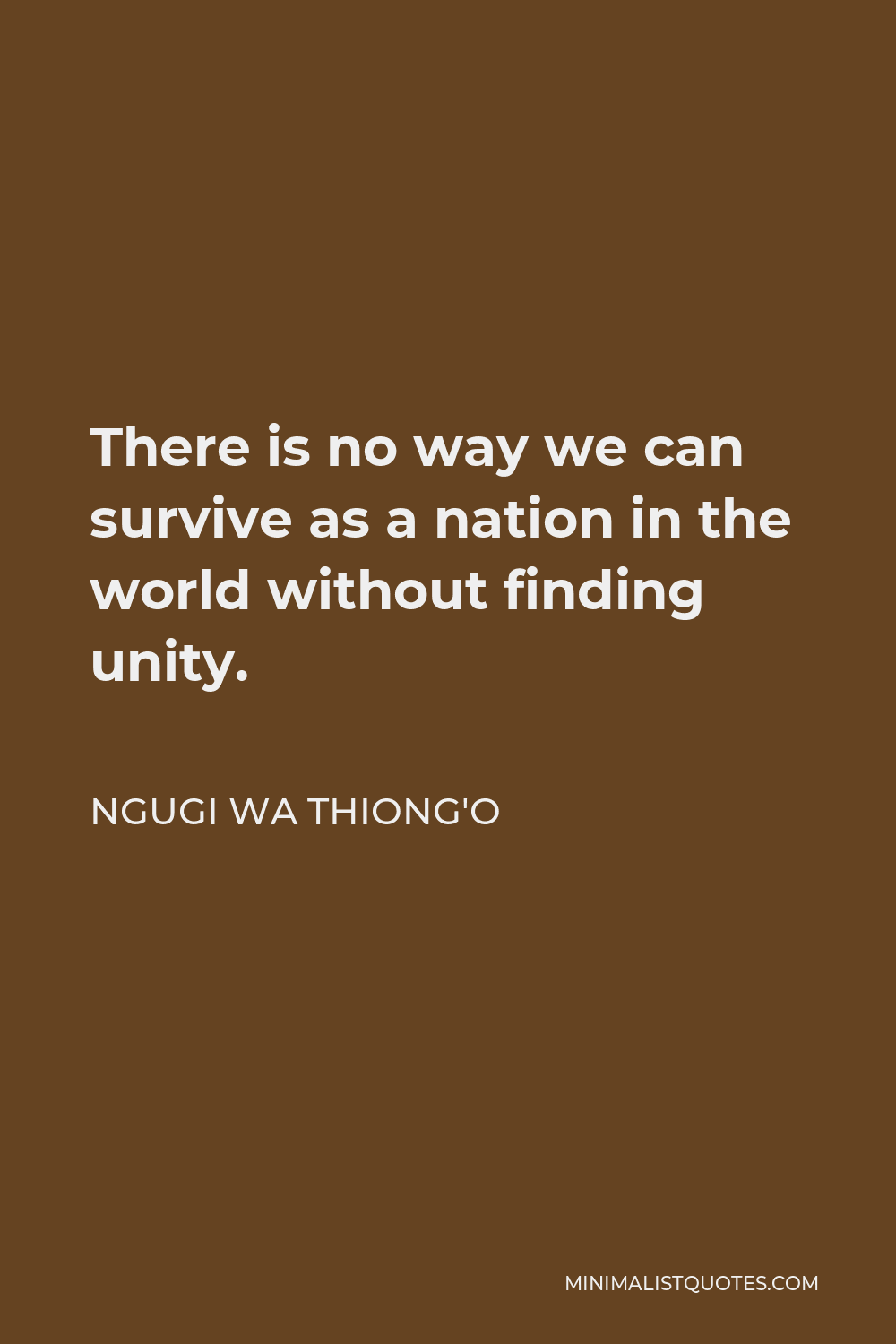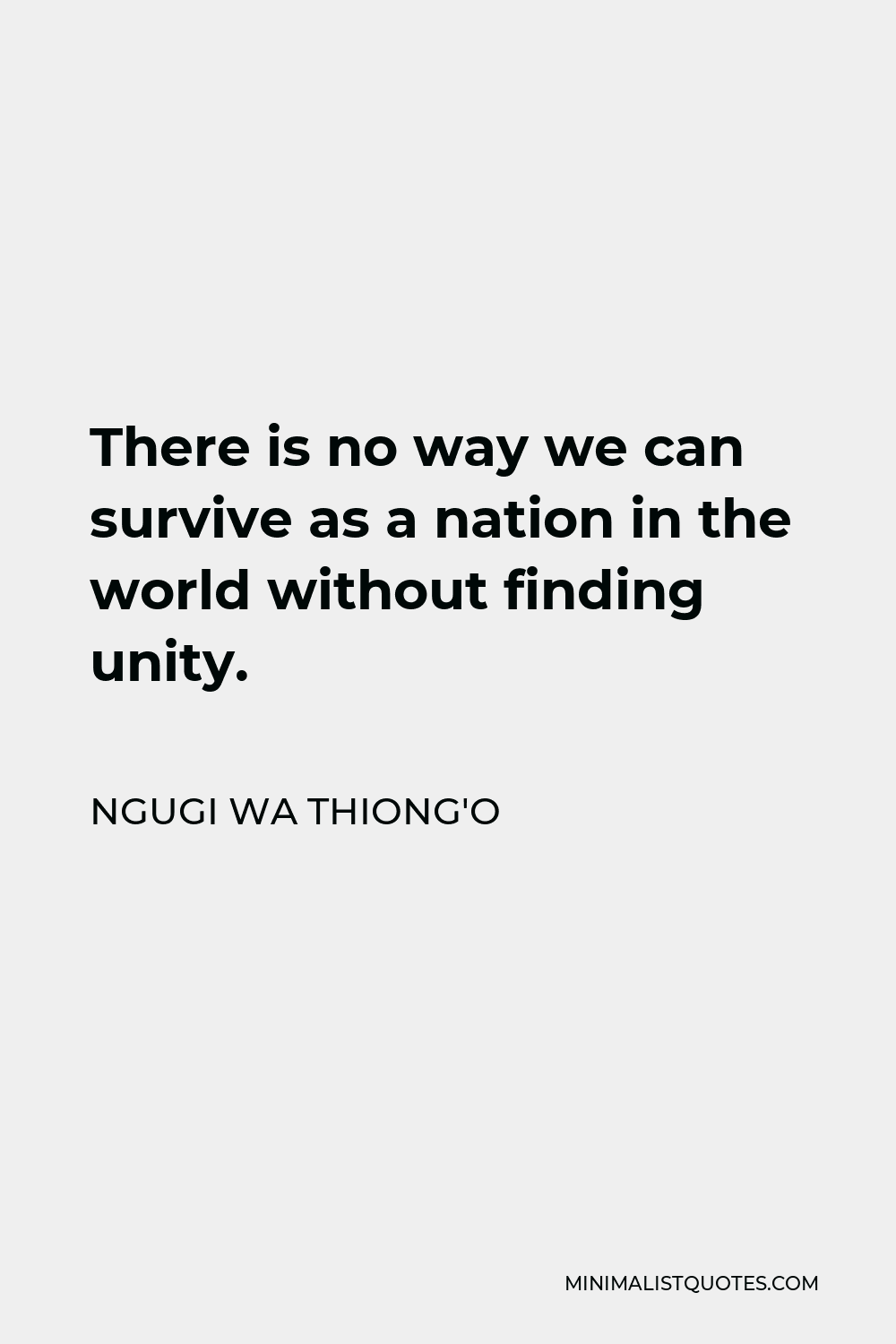I’m more trying to connect; I’m more listening to people. Whatever I get is very meaningful to me.
NGUGI WA THIONG'OThere is no way we can survive as a nation in the world without finding unity.
More Ngugi wa Thiong'o Quotes
-





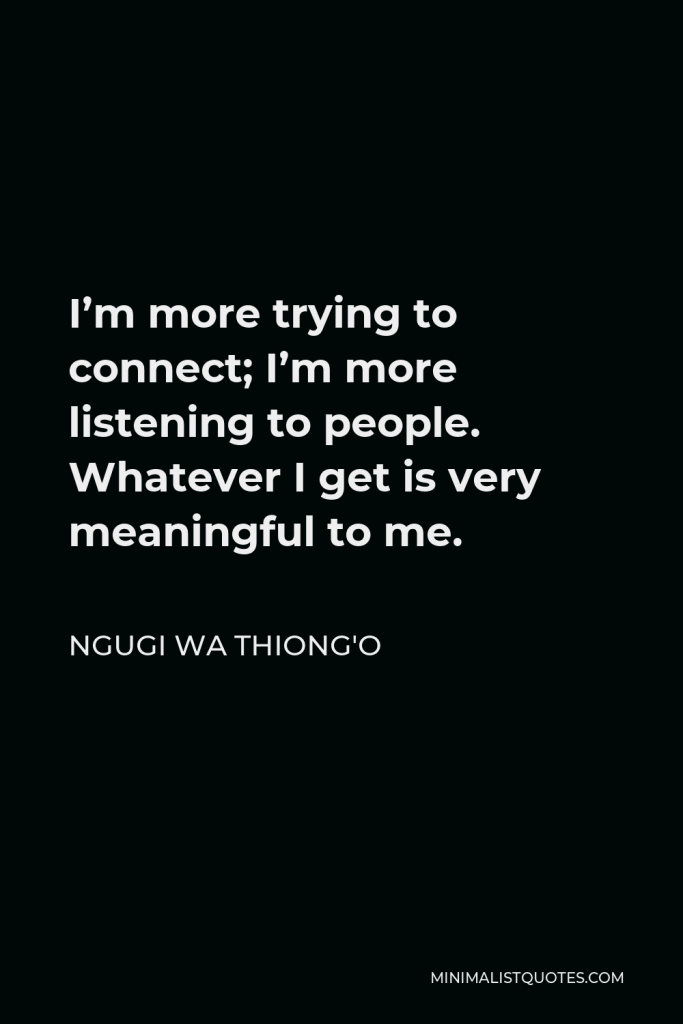

-





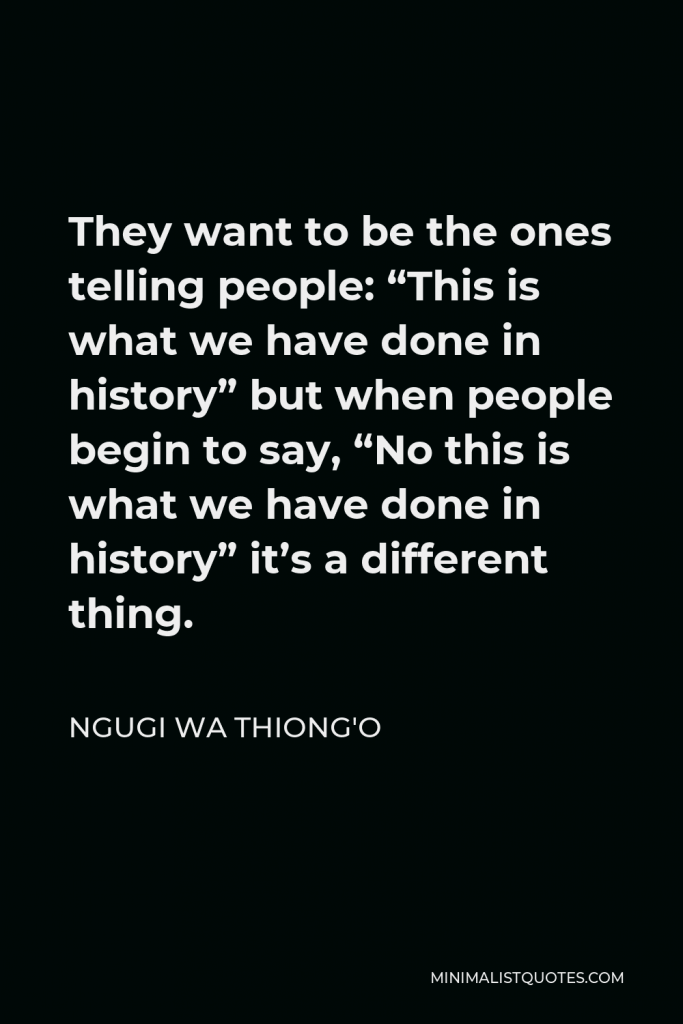

They want to be the ones telling people: “This is what we have done in history” but when people begin to say, “No this is what we have done in history” it’s a different thing.
NGUGI WA THIONG'O -





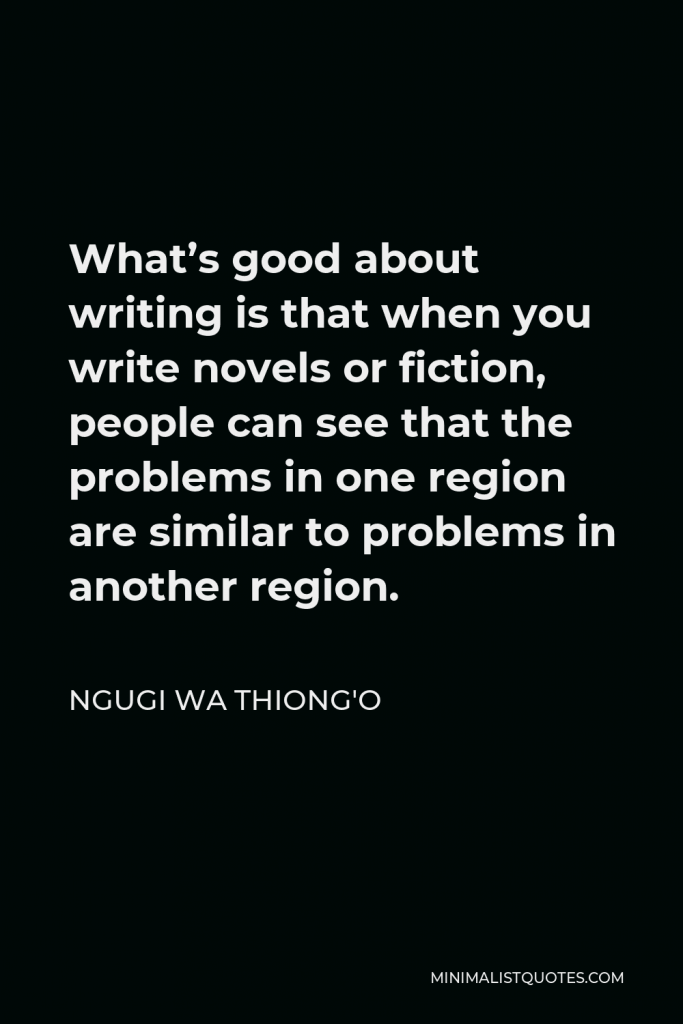

What’s good about writing is that when you write novels or fiction, people can see that the problems in one region are similar to problems in another region.
NGUGI WA THIONG'O -





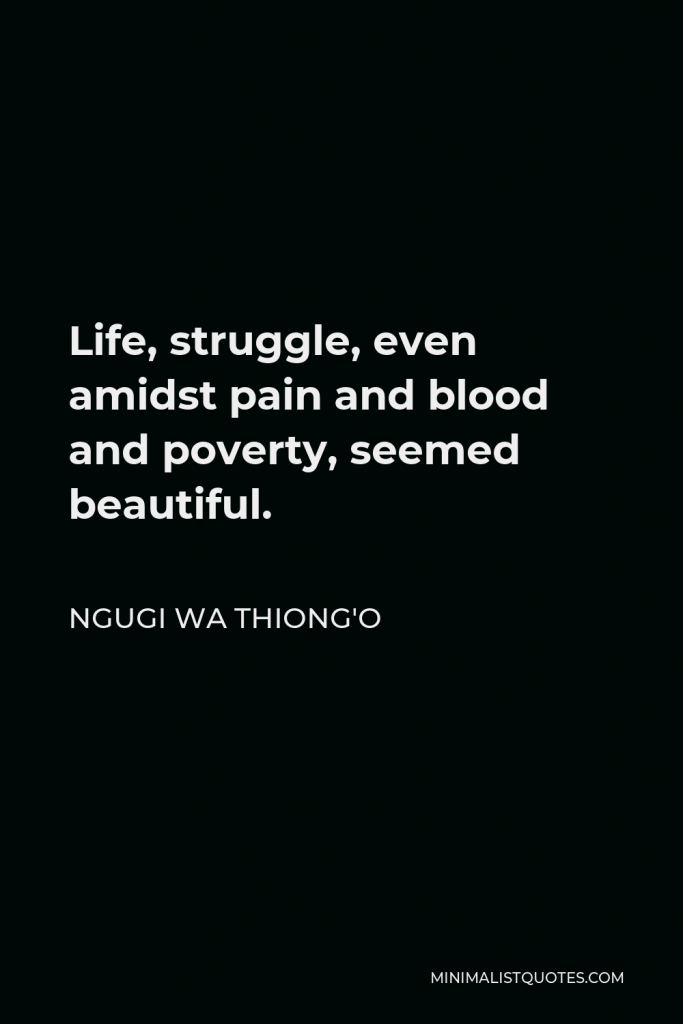

Life, struggle, even amidst pain and blood and poverty, seemed beautiful.
NGUGI WA THIONG'O -





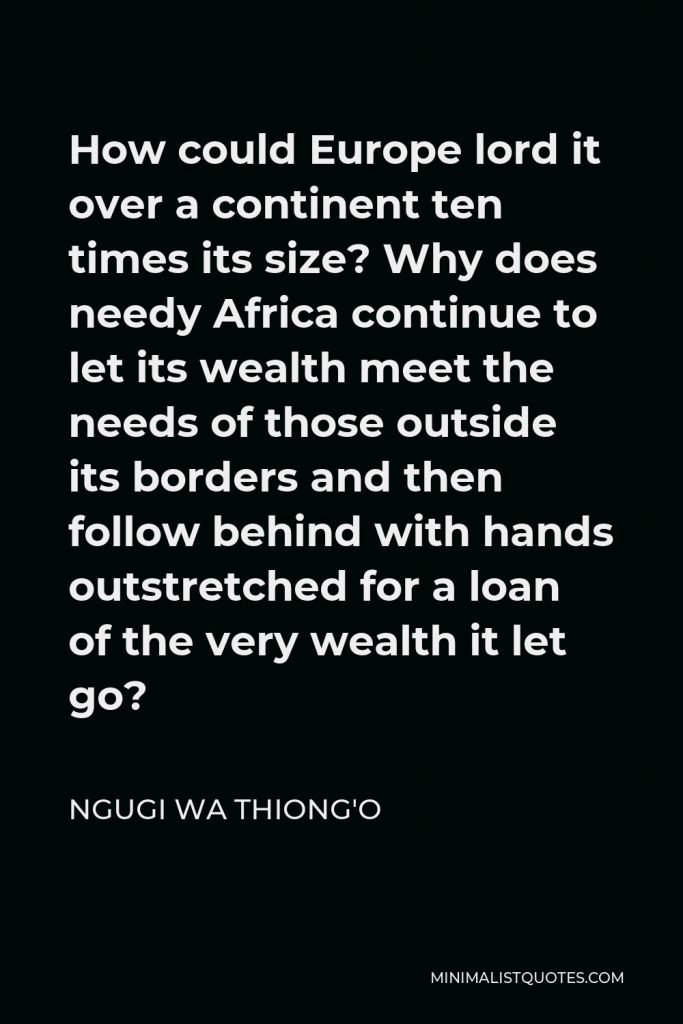

How could Europe lord it over a continent ten times its size? Why does needy Africa continue to let its wealth meet the needs of those outside its borders and then follow behind with hands outstretched for a loan of the very wealth it let go?
NGUGI WA THIONG'O -





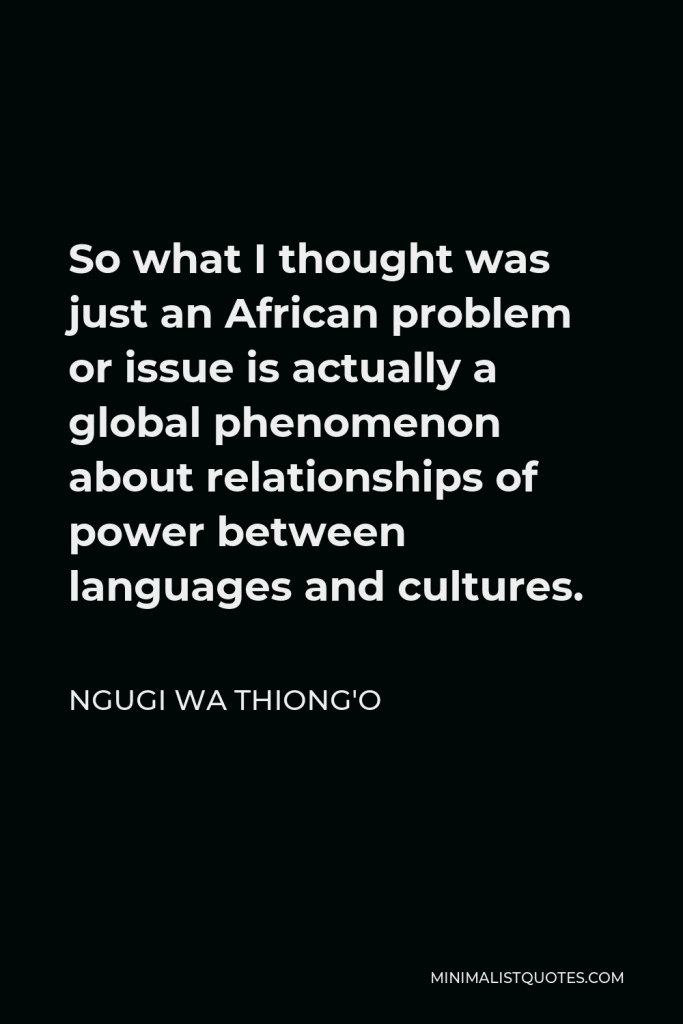

So what I thought was just an African problem or issue is actually a global phenomenon about relationships of power between languages and cultures.
NGUGI WA THIONG'O -





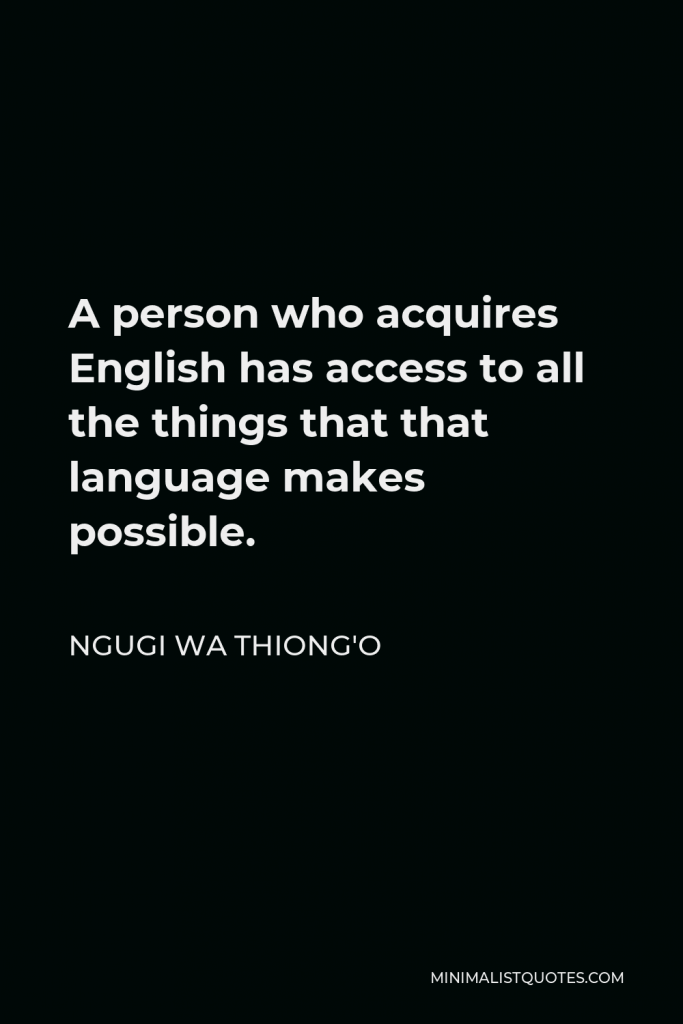

A person who acquires English has access to all the things that that language makes possible.
NGUGI WA THIONG'O -





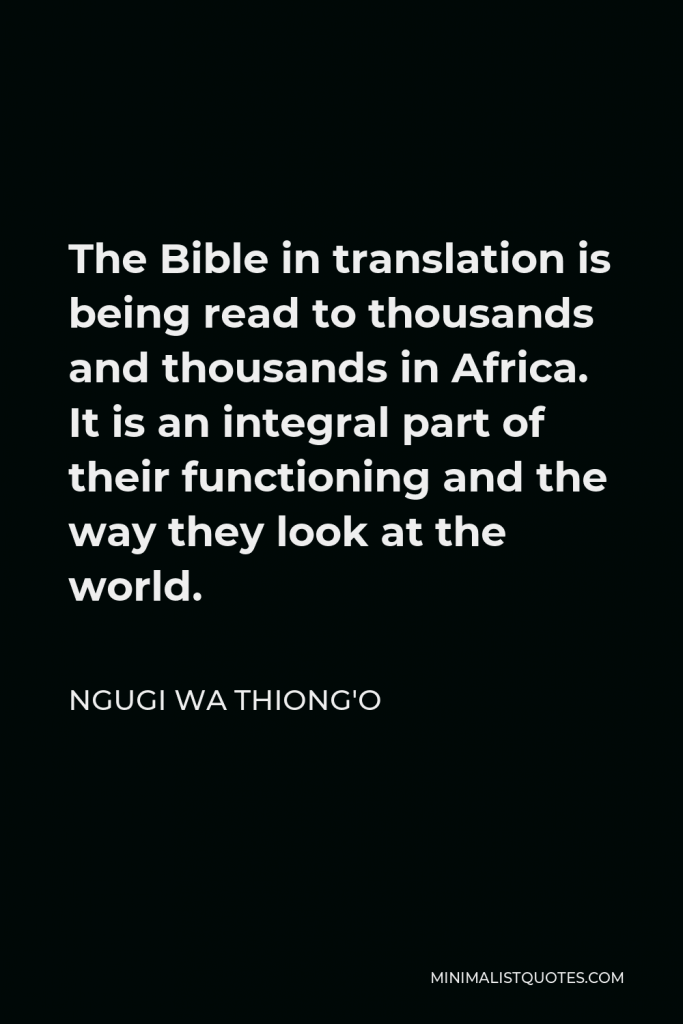

The Bible in translation is being read to thousands and thousands in Africa. It is an integral part of their functioning and the way they look at the world.
NGUGI WA THIONG'O -





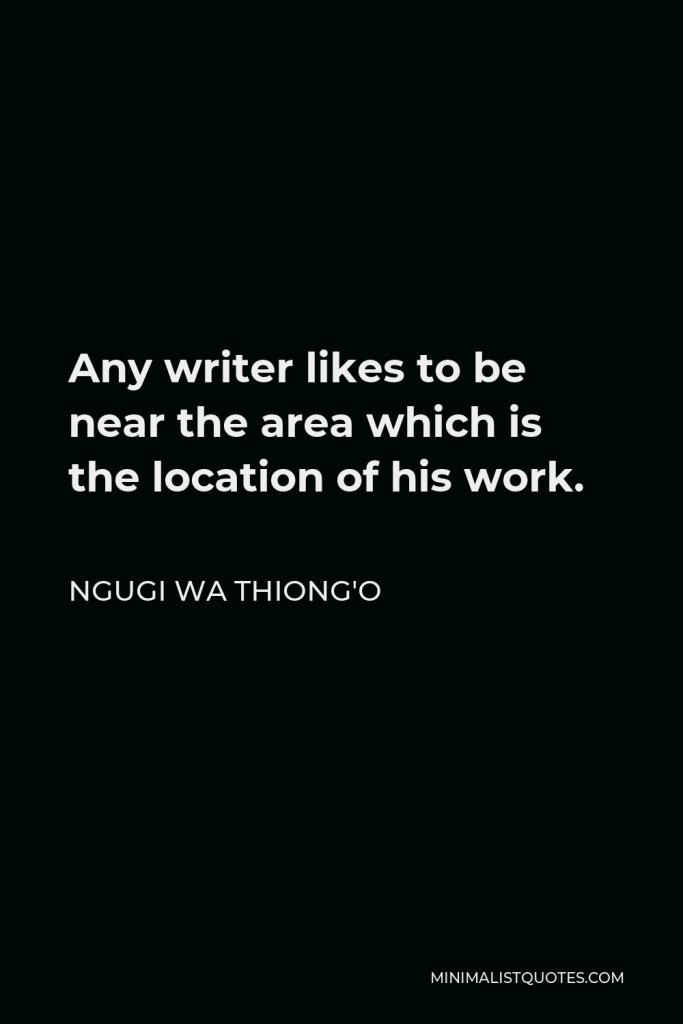

Any writer likes to be near the area which is the location of his work.
NGUGI WA THIONG'O -





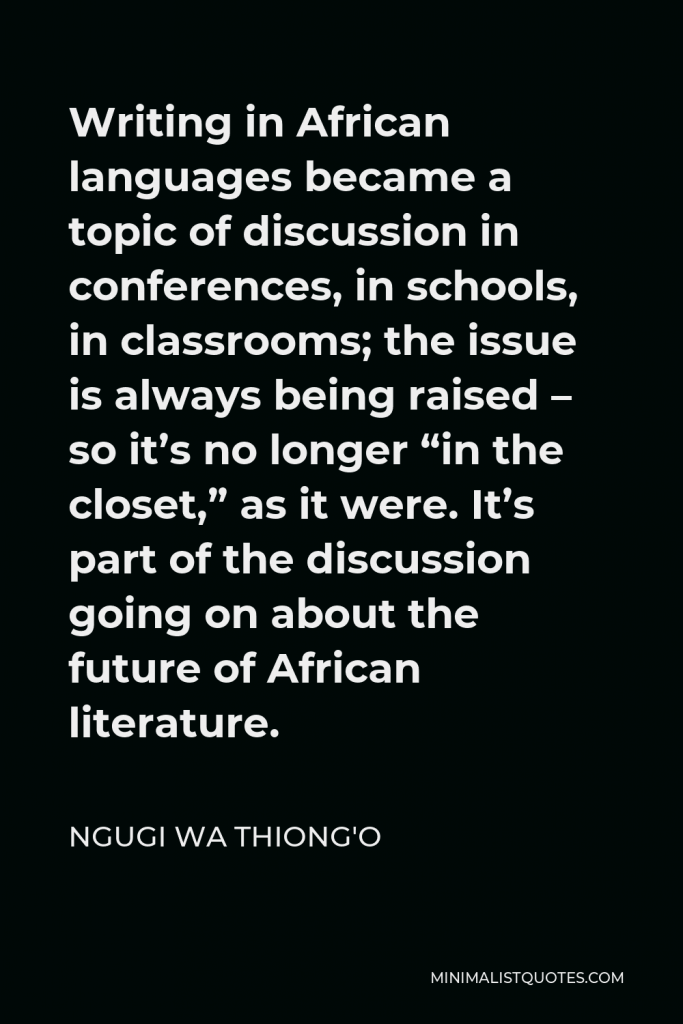

Writing in African languages became a topic of discussion in conferences, in schools, in classrooms; the issue is always being raised – so it’s no longer “in the closet,” as it were. It’s part of the discussion going on about the future of African literature.
NGUGI WA THIONG'O -





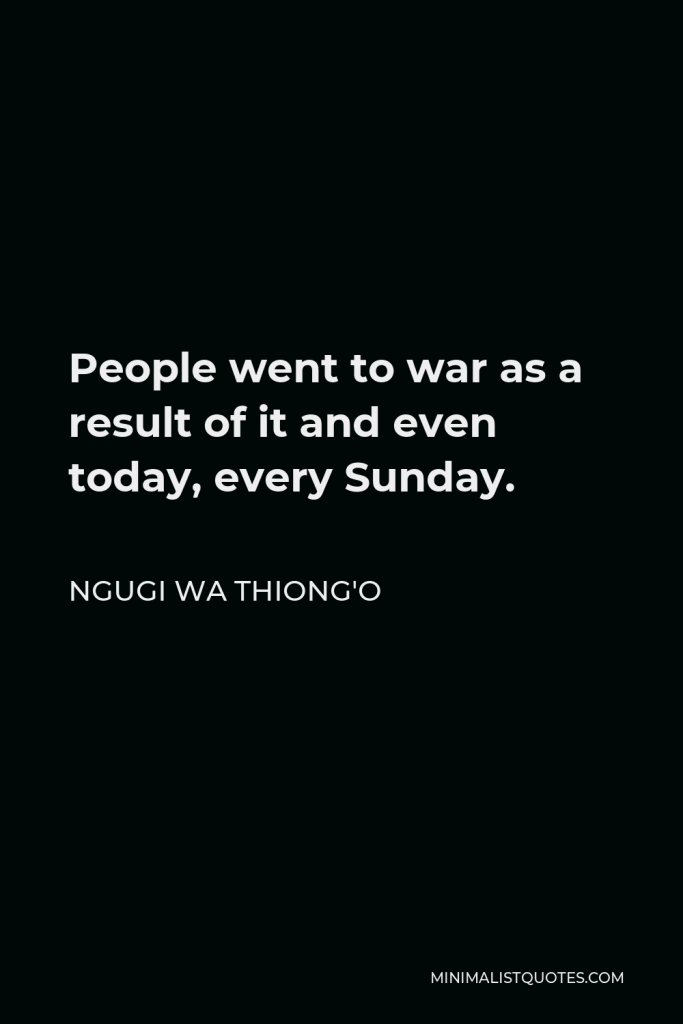

People went to war as a result of it and even today, every Sunday.
NGUGI WA THIONG'O -





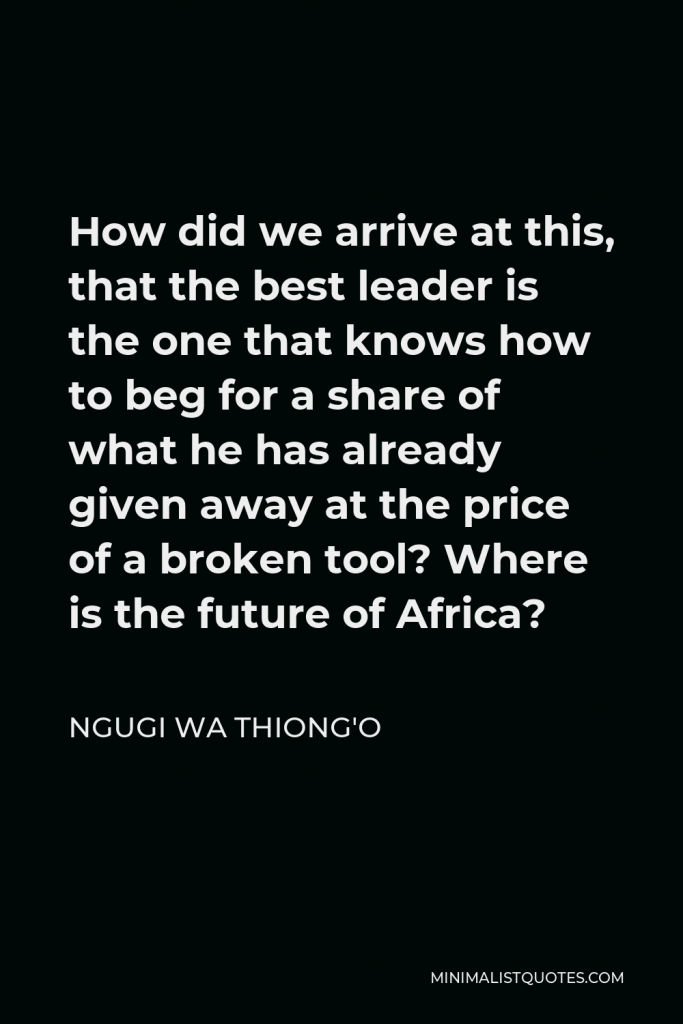

How did we arrive at this, that the best leader is the one that knows how to beg for a share of what he has already given away at the price of a broken tool? Where is the future of Africa?
NGUGI WA THIONG'O -





![Ngugi wa Thiong'o Quote - Those who strive to build a protective wall around it, and those who wish to pull it down; those who seek to mould it and those committed to breaking it up; those who aim to open our eyes, to make us see the light and look to tomorrow […] and those who wish to lull us into closing our eyes](https://minimalistquotes.com/wp-content/uploads/2022/09/those-who-strive-to-build-a-protective-wall-around-683x1024.jpg)

Those who strive to build a protective wall around it, and those who wish to pull it down; those who seek to mould it and those committed to breaking it up; those who aim to open our eyes, to make us see the light and look to tomorrow […] and those who wish to lull us into closing our eyes
NGUGI WA THIONG'O -





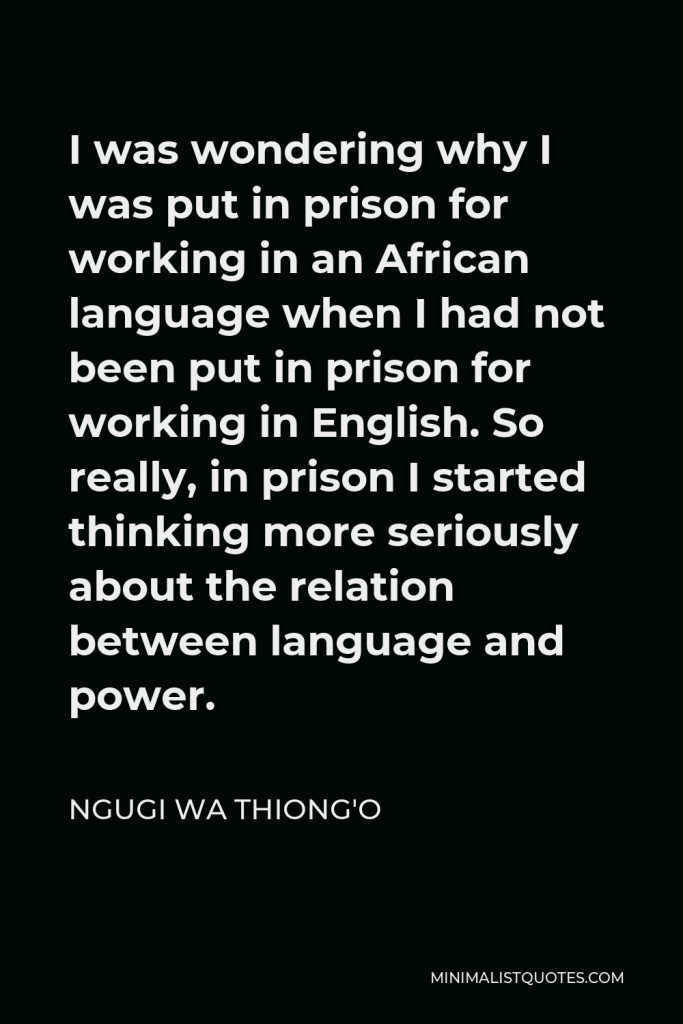

I was wondering why I was put in prison for working in an African language when I had not been put in prison for working in English. So really, in prison I started thinking more seriously about the relation between language and power.
NGUGI WA THIONG'O -





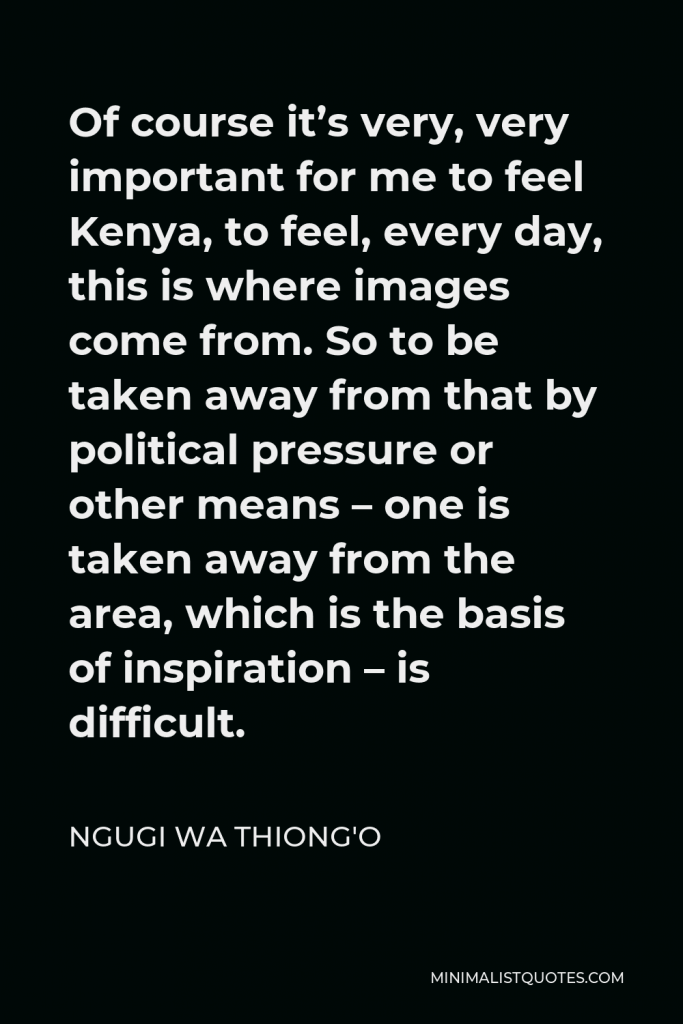

Of course it’s very, very important for me to feel Kenya, to feel, every day, this is where images come from. So to be taken away from that by political pressure or other means – one is taken away from the area, which is the basis of inspiration – is difficult.
NGUGI WA THIONG'O -





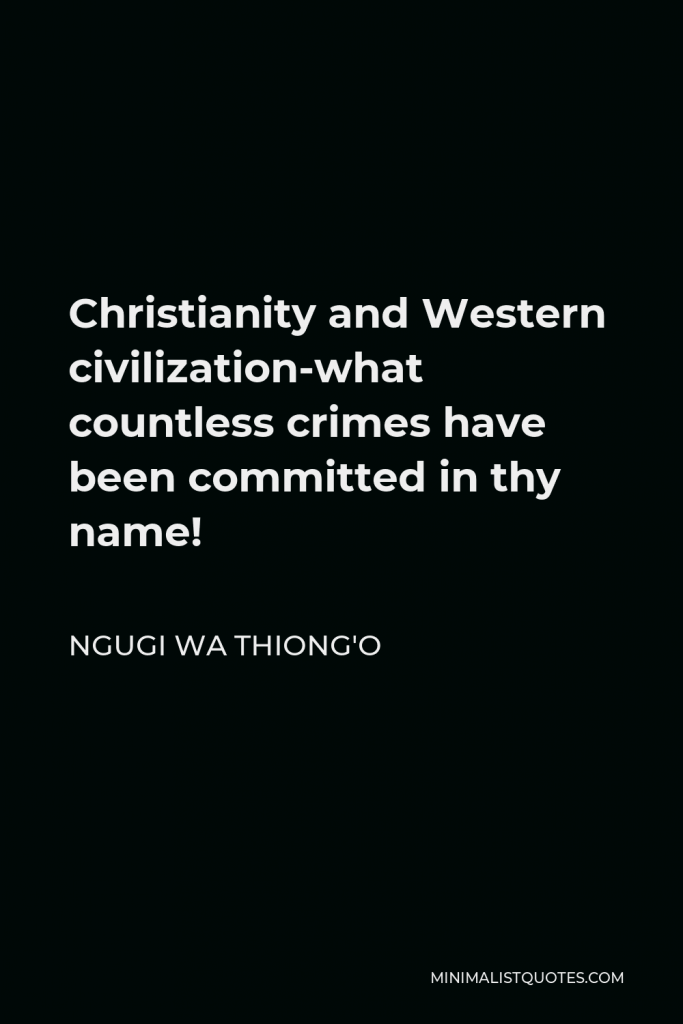

Christianity and Western civilization-what countless crimes have been committed in thy name!
NGUGI WA THIONG'O
